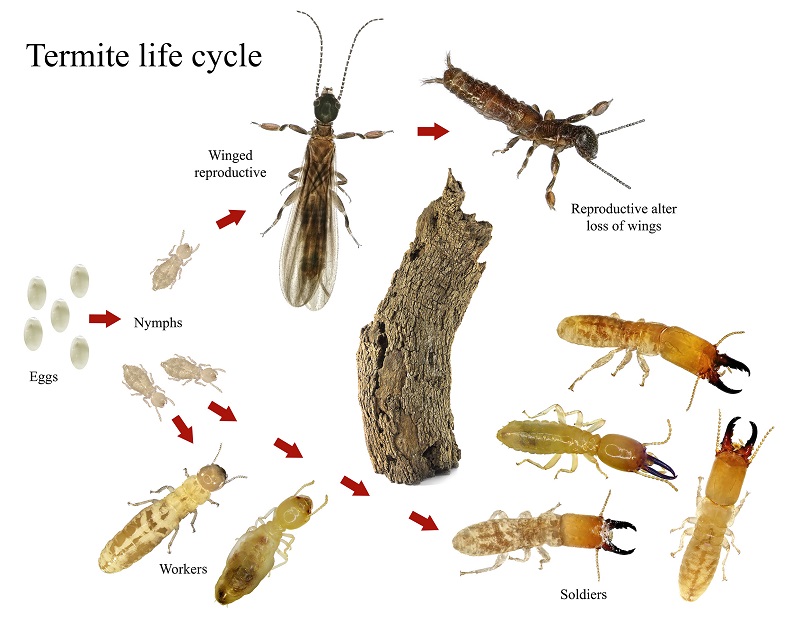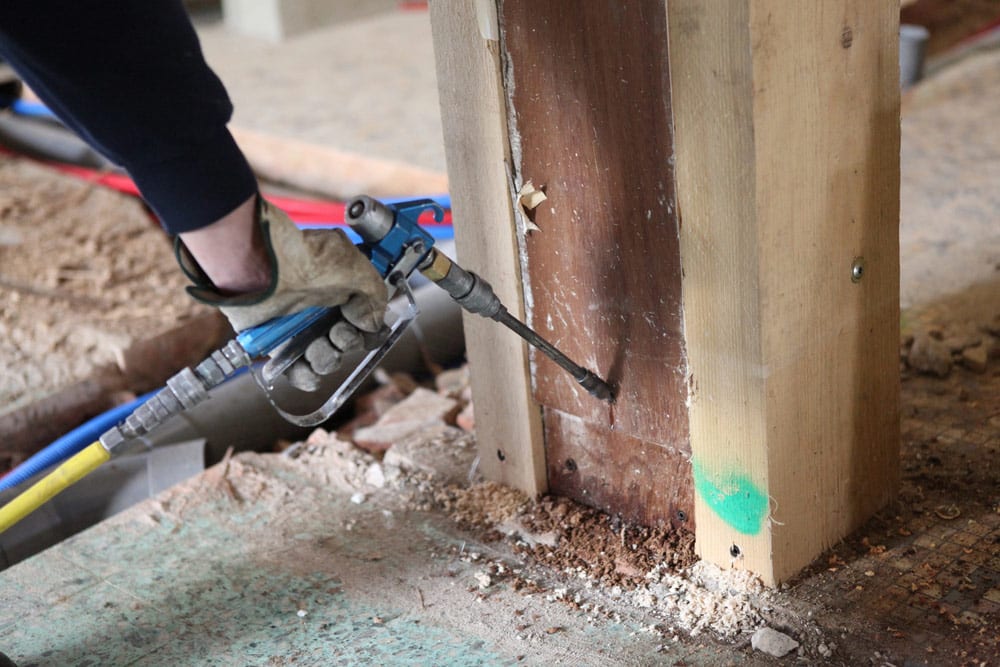Professional Ant Control Services: Personalized Treatments for Enduring Outcomes
Professional Ant Control Services: Personalized Treatments for Enduring Outcomes
Blog Article
Ecological Effect of Parasite Control: Balancing Efficiency With Sustainability
The environmental effect of bug control is a vital concern that calls for a fragile balance between achieving efficiency in taking care of parasites and guaranteeing sustainability of our communities. From the use of damaging chemicals that leak right into our dirt and water to the unexpected effects on non-target varieties, the effects of standard parasite control techniques are far-ranging.
Unsafe Chemicals in Parasite Control
The application of harmful chemicals in pest control poses significant ecological and wellness threats that call for cautious consideration and mitigation strategies. Pesticides, pesticides, and herbicides are frequently utilized to eliminate pests, but their prevalent application can bring about unexpected repercussions. These chemicals can pollute soil, water resources, and the air, impacting not only the targeted parasites yet likewise useful bugs, wildlife, and human beings.

To address these dangers, incorporated pest administration (IPM) methods are being advertised as a much more sustainable option. IPM includes a combination of methods such as organic control, environment adjustment, and the targeted usage of chemicals as a last hotel (ant control cherryville nc). By adopting an alternative approach to pest control, we can reduce the environmental and wellness effects associated with hazardous chemicals while effectively taking care of pest populations
Influence On Non-Target Types
Considering the unplanned repercussions of pest control approaches, the impact on non-target varieties is an important element that calls for extensive evaluation. While bug control steps intend to target particular parasites, other microorganisms in the community might be unintentionally influenced. Non-target types, consisting of useful insects, birds, animals, and also plants, can suffer indirect or direct damage from chemical applications or biological control methods.
Chemicals can have dangerous or sub-lethal impacts on non-target varieties. Pesticides designed to fight a certain bug pest may hurt pollinators like or natural killers such as ladybugs. In addition, chemical residues can build up in the atmosphere, influencing non-target organisms in time. Biological control agents, if not species-specific, can position dangers to unplanned targets, interfering with the ecological balance.
To alleviate the effect on non-target types, integrated insect administration (IPM) methods that highlight an alternative technique to pest control are suggested. These methods prioritize using eco pleasant methods, reducing damage to helpful microorganisms while efficiently managing pest populaces. Performing detailed danger evaluations and checking the results of insect control efforts are crucial action in securing non-target species and advertising general community health.
Soil and Water Contamination
Unplanned environmental repercussions of parasite control methods prolong past affecting non-target varieties, with substantial effects for soil and water contamination - termite control. Chemicals, herbicides, and chemical fertilizers made use of in bug control can seep into the dirt and contaminate groundwater, presenting a hazard to both water and earthbound ecosystems.
Water contamination is another critical issue linked with parasite control methods. To reduce soil and water contamination from pest control tasks, incorporated bug management techniques that prioritize sustainability and minimize chemical inputs are critical.
Air Air Pollution From Chemical Use
Direct exposure to airborne chemicals during agricultural applications postures a considerable problem for air pollution control procedures. Furthermore, chemical drift, where pesticides are brought by the wind to unintended locations, can lead to the contamination of nearby ecological communities and water bodies.

Strategies for Sustainable Bug Control
In the world of farming techniques, implementing sustainable bug control approaches is paramount for preserving environmental equilibrium and safeguarding plant yields. Sustainable insect control highlights using eco pleasant approaches to take care of parasite populaces effectively while reducing harm to non-target organisms and environments. Integrated Bug Monitoring (IPM) is a commonly embraced method that combines biological, social, physical, and chemical control approaches to attain lasting bug monitoring options.
Plant turning and diversity are likewise efficient techniques to interfere with pest life cycles and develop less favorable conditions for bugs to prosper. Eventually, by incorporating these sustainable parasite control techniques, farmers can attain a balance in between pest management efficiency and ecological stewardship.
Verdict
In final thought, the ecological impact of bug control approaches should be meticulously considered to stabilize performance with sustainability. Damaging chemicals made use of in insect control can bring about soil and water contamination, air pollution, and injury non-target species - termite control services. It is important to apply sustainable insect control approaches to minimize these unfavorable impacts on the environment and promote a much healthier ecological community for future generations
By adopting an alternative strategy to pest control, we can reduce the ant control high point nc ecological and health influences linked with hazardous chemicals while properly managing pest populaces.

To minimize the air pollution created by pesticide usage, it is essential to take on integrated parasite management approaches that prioritize the use of non-chemical parasite control methods, such as crop turning, natural predators, and immune plant ranges. Lasting parasite control highlights the usage of eco friendly techniques to take care of pest populations properly while reducing injury to non-target microorganisms and communities. Integrated Parasite Management (IPM) is a commonly taken on method that integrates biological, cultural, physical, and chemical control approaches to achieve lasting insect administration remedies.
Report this page